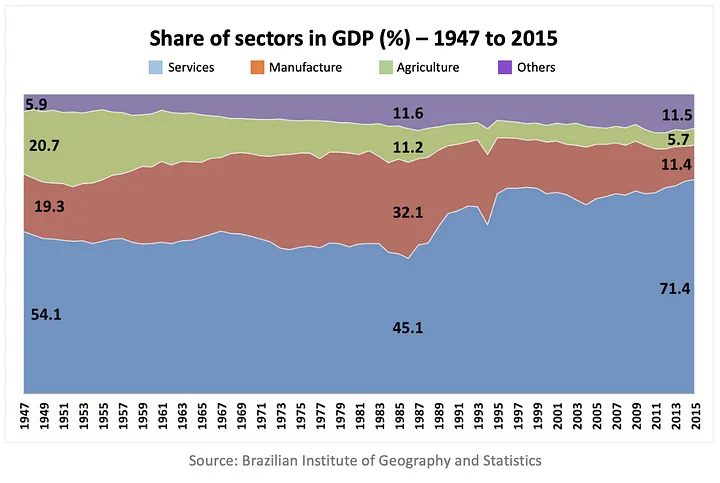
We live in an accelerated stage of innovation. Imagine that, in some countries, it is already printing toys for our children on a 3D printer, programming a fridge to trigger orders for groceries that are out of stock, and cycling through the south of France in a scenario generated by augmented reality without leaving home, make real-time payments on messaging platforms or by QR Code. It sounds like science fiction, but it’s reality.
In my last job, I carried out a survey on the main trends that, in our view, could impact personal and business relationships globally over the next 15 years. Some phenomena are being born and are expected to multiply in the near future, while others are planned in studies by specialists, market executives and clients from different sectors.
I would like to share below some paths we observe in relation to habits, and technological and social advances that companies and people should keep an eye on. In this initial analysis, explore three pillars: the future of the human, consumption and money. As you will see, the themes are connected and interrelated within a larger innovation ecosystem.
The objective, far from being definitive, is to generate a discussion and feed the debate. After all, we are dealing with predictions made based on the current world. And as we’ve just learned, everything can change overnight.
- An increasingly fluid identity: terms such as liquid identity and fluid genres are increasingly present in our daily lives. Thanks to recent achievements of the LGBTQIA+ community and claims for equity rights, we have evolved in topics such as diversity both in society and in companies. To get an idea, there is a social network, for example, which has more than 70 gender identity options for the user to choose from.
2. For a world with more purpose: the pandemic made us raise awareness. And society pressured agencies, companies and governments to adjust their conduct and solve global problems such as racial inequality, emission of polluting gases, food waste, water shortages, and moral and sexual harassment. Movements, like Black Lives Matter and #metoo, are important achievements in this scenario.
- Flexibility at work and nomadic life: how are we going to work and live in the future? Hybrid models are gaining strength in several companies as a means of guaranteeing people’s well-being and adapting the routine to the desires of Generation Z. Large companies, such as big techs, are already waiting to test, for example, a four-day journey of I work a week and saw that performance and production is equivalent to five days.
- Well-being above all else: mental health has taken over the corporate agenda in a movement that seems to have no way back. People are prioritizing quality of life, personal development and emotional balance. And technology can be a powerful driving ally, providing more convenient experiences, bringing people together, generating new connections and transporting us to new realities.
- New connections, new relationships: the way we behave and present ourselves on different social networks has changed with the advent of new relationship and communication platforms. We create different personas according to each digital environment, multiplying our profiles and connections, maintaining our unique personality and our human condition.
6. Metaverse and the expansion of the universe: Artificial Intelligence and augmented reality tools are breaking down the boundaries between the physical and digital world and providing a new immersive experience. The metaverse concept promotes the interaction of several people in a virtual environment with 3D experiences that blend in with reality.
- Convenience in the first place: new technologies are connected to the way we buy and acquire products and services. The shopping experience on social networks, fast money transfers, frictionless payment methods, intelligence that predicts consumer behavior based on data usage, on-demand services are just a few examples of this revolution we are already in living.
- Ubiquitous Commerce: Can you imagine that, in the near future, instead of buying, for example, toy parts to assemble for your child, you will be able to print the items with your 3D printer? That is, create your own product and consume it your way, eliminating a series of steps in your purchase journey.
9. Conscious consumption: just as we talked about purpose above, consumption linked to values and ethics is a global trend that is starting to have an impact in Brazil. Companies are increasingly concerned about reducing carbon emissions in their operations, promoting habits in their production and distribution network and offering consumers benefits associated with correct and responsible conduct.
10. The dematerialization of money: our relationship with money and means of payment is undergoing a major transformation. It is what vaporized from the deconstruction of the plastic (of the card). What felt like a physical thing has become a digital payment credential, which allows for faster, safer and more convenient transactions. The advance of digital wallets, cryptocurrencies and real-time payments are a sign of the constant evolution of the payments industry, fueled by disruptive solutions offered by fintechs and digital banks.
These are just a few insights that can help your company’s vision of the future. And, you, what do you think about our future?


